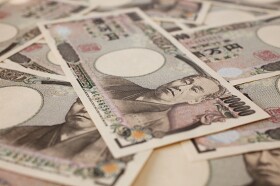The Japanese yen is strengthening on Tuesday after new economic indexes climbed in April. This comes soon after the central bank signaled that it is willing to ease monetary policy if the economy warrants stimulus. Investors should also get a glimpse into the upcoming US-Japan trade negotiations as officials will meet with American trade representatives.
In April, the Cabinet Officeâs coincident index inched higher to 102.1, up from 101.1 in the previous month. The index beat market expectations of 101.9. This is an important index because it contains a variety of factors, including employment, retail sales, and factory output.
Japanâs leading economic index came in at 95.9 in April, up from 95.7 in March. It was higher than the median estimate of 95.5. This, too, is a critical gauge of the economy because it considers 12 economic indicators, including machinery orders, stock prices, and account inventory ratios.
Markets will now wait for retail sales numbers on Wednesday and labor figures and industrial output data on Thursday. The consensus is a contraction in retail sales, an unchanged unemployment rate of 2.4%, and a modest gain in industrial production in May.
Economy Minister Toshimitsu Motegi announced on Tuesday that he will meet US Trade Representative Robert Lighthizer later this week to prepare for intense US-Japan trade talks. The White House aims to reduce the trade deficit and increase exports, while Tokyo will likely propose lower tariffs. Motegi said he will announce full details soon.
Should a potential trade spat further impact the worldâs third-largest economy, then the central bank could intervene and ease monetary policy to facilitate growth. Although the Bank of Japan (BOJ) left interest rates steady, it signaled that it is ready to initiate stimulus, following the lead of the Federal Reserve and multiple European central banks.
Governor Haruhiko Kuroda told a news conference:
If the economy loses momentum toward achieving our price target, weâll of course consider expanding stimulus without hesitation.
Downside risks regarding overseas economies are big, so we must carefully watch how they affect Japanâs corporate and household sentiment.
The USD/JPY currency pair tumbled 0.36% to 106.91, from an opening of 107.30, at 14:33 GMT on Tuesday. The GBP/JPY fell 0.53% to 135.97, from an opening of 136.73.
If you have any questions, comments, or opinions regarding the Japanese Yen, feel free to post them using the commentary form below.
